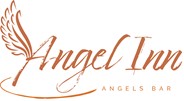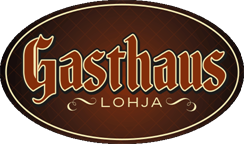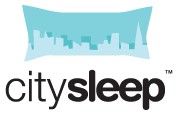A common issue for hotel owners is how to maximise revenue and occupancy rates when you are entering an off-season period.
Revenue management strategies
To be effective, revenue and yield management strategies need to consider seasonality and time. Although seasons can be put into blocks, operators need to assess each day in turn. Making broad assumptions about conditions on a particular day is not an effective way to manage your rates.
Seasonality, special events and high demand are factors that a property owner should take into account when developing a rate strategy.
The idea though isn’t to simply just increase rates or drive up occupancy, but to have the ability to analyse and identify what a property’s different segments are so you can attract the right customer at the right time for the right price.
Revenue management has been adopted and executed by larger hotels and chains for some time, and some smaller hotels and independents have started to use the principles of revenue manager on a smaller scale.
Many hotel operators face the common struggle - trying to find effective ways to stimulate reservations when room occupancy is falling.
Managing your rates
While reducing your rates is a common knee jerk reaction, it can be a short-term boost and sell a few more room nights. As a revenue strategy, it does not necessarily create extra demand; it may just temporarily shift price-sensitive business or at worse trigger a price war.
It’s always easy to reduce rates, but in the longer-term discounting can harm your pricing integrity, leading to resistance in any rate increases when markets have improved.
A more effective option is to focus on adding value, explore different market segments and be innovative with your marketing activities.
It’s also a good time to encourage more direct bookings on your website, by promoting exclusive benefits to those guests that do book direct or convert those that come from other third-party channels.
A direct booking does deliver normally a higher profit margin – you get to know your customers booking habits, engage directly with them and start some relationship building to develop their life time value.
Long gone are the days when it was just about room sales. Today, hoteliers need to consider how to maximize revenue for each and every guest, delegate, diner and passer-by.
To understand the booking behaviour of your guests, you’ll need to understand your prospective guests “booking window” – too far in advance they will not be thinking about it, and leave it too late and they may have already made alternative arrangements.
The key is to use your data to understand your different customer segments and their sensitivity to pricing, and combine that information with historic seasonal demand data.
Managing pricing by adding value
Changing your pricing we know can have longer term consequences, as you try to get back the rate levels you had before.
A more sustainable option is to focus on how you package your rate offering, by adding value.
You can add value through a focus on improving the quality of the guest experience, work on driving up guest satisfaction levels, and trying to capture and share the excitement, images, and positive feedback of your guests.
A higher perceived product value, often communicated through added value, lowers resistance to a higher price point. Price will be one of a number of factors when a prospective customer is deciding where to stay.
Each customer has different motives on why they buy, experience expectations, what their needs are and their price sensitivity.
Channel Management
Each channel that brings reservations to your hotel will probably have a different cost structure related to providing that booking. As such, a good revenue management approach will be to assess each channel in turn, looking at the room rates you achieve, the number of bookings and their costs.
Online Travel Agents (OTAs) tend to be the “go to” online distribution channel for most hotels, small or large. They can help you reach markets that you don’t typically have access to and they have a far larger audience that they can get your hotel in front of.
OTAs are a great channel for building brand recognition and incremental revenue, and need to be thought of as a part of your distribution mix rather than as the sole channel to rely on.
Business from an OTA should where possible be introduced to the benefits of booking directly with your property. By developing your own direct relationship with this segment of guests it will help you to build your own customer data base.
Effective online presence
With such a large proportion of travel researched and booked online, your property needs to have an effective online presence so that you can be found and have an integrated online booking engine for site visitors to be able to book direct.
The classic booking path for a guest tends to be a mix between an OTA website and your own hotel corporate website. Prospective bookers often use the OTA site to begin their research, in order to generate a shortlist of potential properties.
Where the customer experience tends to go wrong is when the user gets frustrated when they use a hotel website and feel underwhelmed by the user experience and head back to the OTA site to complete the booking.
An integrated online hotel booking engine enables guests to book directly through the hotel website.
Data & lt
Many hotels have got into the good habits of collecting data, but end up not using it or don’t know how to extract the value from it. An effective data or business intelligence plan can help a property to analyse existing data, identify trends and support future strategic decision making.
Use your data to assess which segment is the most profitable for your property. Conference groups tend to be a high yielding segment, for instance and are also profitable for the food and beverage outlets.
Tracking your occupancy trends to set prices
A review of your hotel’s annual occupancy forecast will provide insights into soft periods that need help, it should be no surprise for example that particular dates every year need help i.e. December 25th.
With other public holidays local to your market, make sure to check the dates going forward as they may be subject to change.
Technology – booking direct
Happybooking has fully integrated modules and provides features that support you no matter the size of business, with automated payment solutions, custom integrations to POS (Point of Sale) systems, seamless channel management integrations with access to +100 booking channels including GDS connectivity and much more.
Take a quick tour to see how it works - click here.
Our guest blogger is John Kennedy. John is a hospitality consultant, dedicated to helping increase profits through marketing, revenue management and efficient operations. www.kennedyandersson.com
Image source: www.pixabay.com



